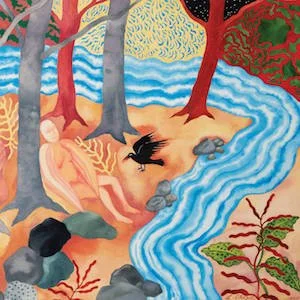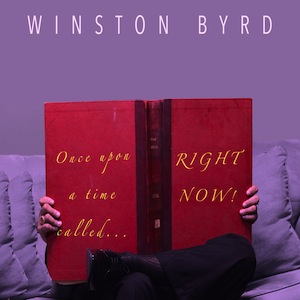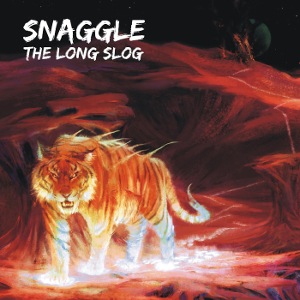Label: Shifting Paradigm Records, 2025
Personnel - Dan Bruce: electric and acoustic guitar; Jordan McBride: electric bass; Gabe Jones: drums + Jason Kush: tenor saxophone (#1); Reggie Watkins: trombone (#10); Nathan Douds: keyboards (#10), programming (#2,4,6,9); Nadine Douds: vocals (#5).
Cleveland-based guitarist Dan Bruce, a former fixture of the Chicago scene, stakes a strong claim for versatility with this powerhouse trio project alongside bassist Jordan McBride and drummer Gabe Jones. His Ohm! trio welcomes several guests along the way, engaging in a creative exchange where the musicians communicate closely across a variety of frameworks. Modern jazz, indie rock, and fusion languages coexist here.
The group reaches a peak of inspiration right from the start with “The Architects”, featuring guest tenor saxophonist Jason Kush, whose beseeching horn takes center stage atop a dense rhythmic flow. The rhythm section initially lays down a punkish rock drive—odd guitar riffery, punchy bass lines, and crisp drumming—before shifting gears into an electric funk-jazz groove, where Bruce’s and Kush’s lines generate magnetic polyrhythmic currents. The music circles back to its opening wave before jumping straight into “Eh?”, a track whose blues-rock instincts are refreshed by charming, if enigmatic, jazz harmonies.
“Glimpse” unfolds as a ballad with alternative-rock leanings, with the trio having no problem in intensifying and thickening its texture. This number’s explicit song form contrasts with the freer posture of “Major_Chord”, the only piece not written by Bruce, previously appearing on his Beta Collective album Earthshine (2017). Although its composer, keyboardist (and drummer) Nathan Douds, does not perform in this tightly wound three-way conversation—driven by a syncopated modern beat—he remains a key presence as the programmer behind four short interludes titled “Incidentals”.
Douds also appears on keyboards on the distinguished closer “Rare Birds”, joined by trombonist Reggie Watkins. This buoyant fusion piece opens with crisp staccato energy and remarkable ensemble synchrony. A propulsive funk groove soon provides an inviting platform for Bruce’s explorations—his attack forceful, his phrasing resolute. The transitions are seamless, never feeling disjointed.
“Ice” brings a distinct atmosphere of its own, marked by Bruce’s acoustic guitar, an odd-meter flow, and the alluring voice of singer-songwriter Nadine Douds. Here, McBride and Jones are given ample space to shine: the former delivers a simpatico solo, while the latter expands his rhythmic vocabulary across an energetic vamp.
Favorite Tracks:
01 - The Architects ► 05 - Ice ► 10 - Rare Birds






















